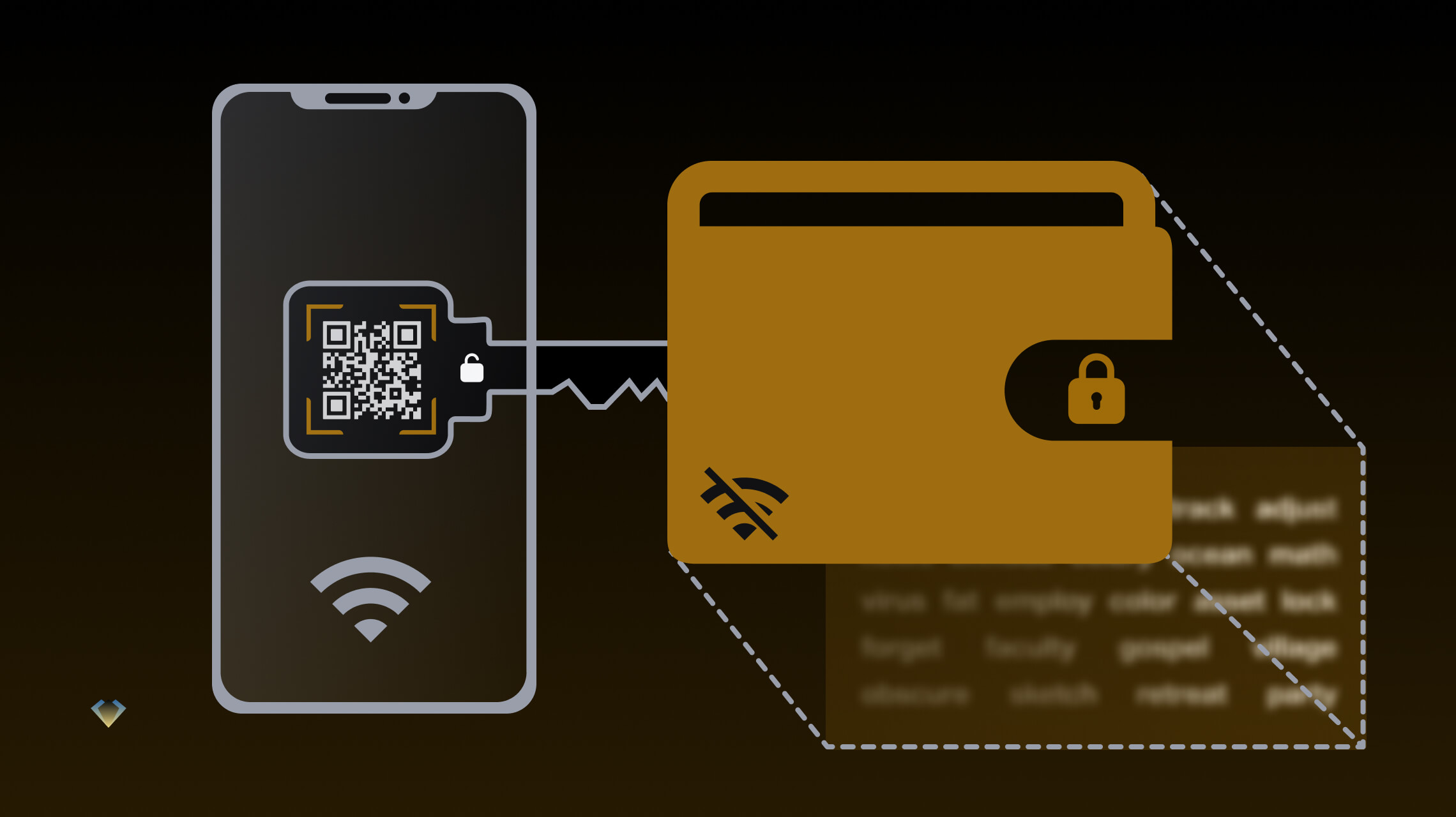News

What Is A Hardware Crypto Wallet? Exploring The Secure Solution For Storing Cryptocurrency
To utilize a hardware wallet for cryptocurrencies, link the wallet to a computer or mobile device, input the personal identification number (PIN), adhere to the provided guidelines for sending or receiving crypto, and subsequently keep the wallet stored offline in a secure manner for enhanced protection.
Investing in cryptocurrencies is widely recognized as carrying risks due to the volatile nature of the crypto market, regulatory challenges, and prominent cases of hacks, scams, and fraudulent activities. As stated in Chainalysis' recent report on cryptocurrency-related crimes in 2022, the value of stolen cryptocurrency in hacking incidents and fraudulent activities surpassed $1.9 billion, compared to under $1.2 billion at the same time in 2021.
Managing and safeguarding cryptocurrency assets present their own unique difficulties, necessitating traders to familiarize themselves with the most effective options. A crypto hardware wallet, serving as a form of cold storage, is a physical device meticulously designed to securely store cryptocurrencies offline. This method offers additional layers of security for individuals holding substantial amounts of crypto who wish to preserve their holdings for an extended period.
In this article, we will explore the concept of a hardware wallet, provide insights into its usage, compare the advantages of hardware wallets as opposed to software wallets, and address the persistent question: Is it advisable to store your crypto coins in a hardware wallet?
What is a crypto hardware wallet?
Crypto wallets can be categorized into two main types: hot wallets and cold wallets. Hot wallets are software-based wallets that are connected to the internet, while cold wallets are physical devices. Among cold wallets, hardware wallets are recognized as a highly secure option for storing cryptocurrencies.
A hardware wallet is a tangible device, typically resembling a USB drive or a small plugin gadget, created to offer a secure means of storing cryptocurrencies and other digital assets such as nonfungible tokens (NFTs). It is crucial to understand that hardware wallets don't hold the cryptocurrencies themselves; rather, they store the private keys required to access and manage the stored digital assets.
When choosing a hardware wallet, individuals can consider factors such as price, model, and specifications based on their specific requirements. Most hardware wallets support popular digital assets like Bitcoin (BTC), Ether (ETH), stablecoins such as Tether (USDT) and USD Coin (USDC), as well as other well-known cryptocurrencies like Ripple's XRP and Litecoin (LTC).
When comparing hardware wallets to software wallets, it is evident that software wallets provide convenience and ease of use, while hardware wallets are renowned for their secure storage capabilities. By having a clear understanding of the distinctions between these two options, considering individual user requirements and the desired level of custody over digital assets, users can make well-informed decisions regarding their wallet preferences.
Public and Private Crypto Wallet Keys
Crypto wallet keys, both public and private, play a crucial role in the world of cryptocurrencies. Unlike traditional fiat money, cryptocurrencies exist solely as data on the blockchain. Wallets store this data, which is used to establish ownership of the assets.
Every cryptocurrency wallet is equipped with a pair of keys—a private key and a public key—which are essential for accessing the wallet. The public key can be compared to a bank account number and is openly accessible to anyone. On the other hand, the private key is comparable to an ATM pin code and must be kept secure by the owner.
Private keys grant access to the funds stored in the cryptocurrency wallet and should be meticulously protected by the owner without sharing them with anyone else. These keys are unique combinations of letters and numbers that serve as digital signatures or passwords, enabling users to control and manage their cryptocurrency holdings. Hardware cryptocurrency wallets are commonly used to store these private keys, as they are necessary for authorizing transactions.
Users have self-custody over their digital assets
When individuals choose to store their cryptocurrencies on a centralized exchange (CEX), they essentially hand over custody and control of their private keys and digital assets to the exchange. Instead, they rely on the login credentials provided by the CEX. This arrangement leaves users susceptible to various security risks, such as scams, cyber-attacks, and other vulnerabilities that may arise if the exchange itself becomes a target.
In contrast, hardware wallets enable users to have complete control and self-custody over their digital assets. Users hold and manage their private keys without the need for third-party custodians or exchanges. For transactions involving cryptocurrency, the private key must be "signed," which is achieved within the hardware wallet through the use of a cryptocurrency bridge. A crypto bridge serves as a communication intermediary between the hardware wallet and the blockchain, facilitating a secure connection.
After signing a transaction, the hardware wallet passes the signed transaction to the bridge, which transmits the signed request to the blockchain network. It is worth noting that during this entire process, the user's private key never leaves the hardware wallet, thereby ensuring the security and safety of the transaction.
How to use a hardware crypto wallet?
The specific steps and procedures for using a hardware wallet may vary slightly depending on the specific device. To learn how to use a particular hardware wallet, users can refer to the manufacturer's instructions and follow recommended security practices. These instructions provide guidance on how to effectively utilize the hardware wallet and ensure the utmost security.
Here are the general steps for using a hardware crypto wallet:
- Choose a reputable hardware wallet: First, choose a reputable hardware wallet that meets your needs and preferences. Some of the popular options include Ledger Nano X, Trezor Model T, and KeepKey.
- Set up the hardware wallet: Once you have a hardware wallet, follow the instructions to set up your device. This process typically involves creating a strong and unique password, writing down your recovery seed phrase, installing the wallet software, and connecting your device.
- Transfer cryptocurrencies to the hardware wallet: After the setup is complete, transfer cryptocurrencies to your hardware wallet. This usually involves copying and pasting the wallet address provided by the hardware wallet into the "send" field of your exchange account.
- Manage your crypto assets: With your cryptocurrencies in the hardware wallet, you can manage your digital assets. Some of the common actions include checking your balances, sending and receiving cryptocurrencies, and purchasing more coins or tokens.
- Securely store your hardware wallet: Finally, after using your hardware wallet, make sure to safely store it away in a secure location. Keep in mind that the device holds your private keys and should be handled with care to prevent loss or theft.
Is it safe?
Hardware crypto wallets are commonly viewed as a secure solution for managing one's digital assets and cryptocurrencies. The motto "Not your keys, not your crypto" emphasizes the importance of taking control of one's own security to safeguard against cyber threats. Using hardware wallets and other cold storage solutions helps keep private keys offline and secure from potential attacks. While no security measure can offer absolute protection, hardware wallets provide additional layers of security and safeguards for storing and managing cryptocurrencies.
Recommended to read

How To Join the K8 Discord Server
Welcome to the K8 community! Joining our Discord server is a great way to connect with fellow enthusiasts, stay updated on the latest news, and partic...
Read more
Get K8 Airdrop update!
Join our subscribers list to get latest news and updates about our promos delivered directly to your inbox.


